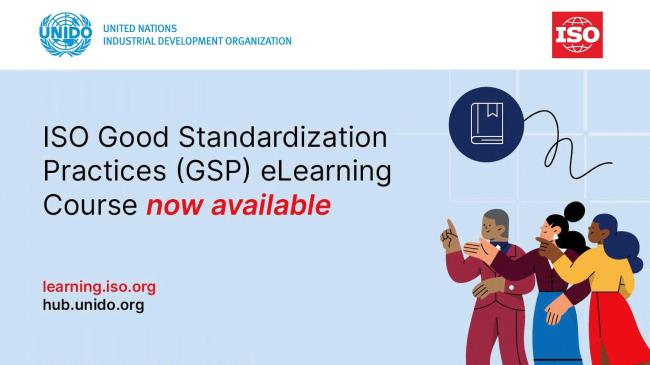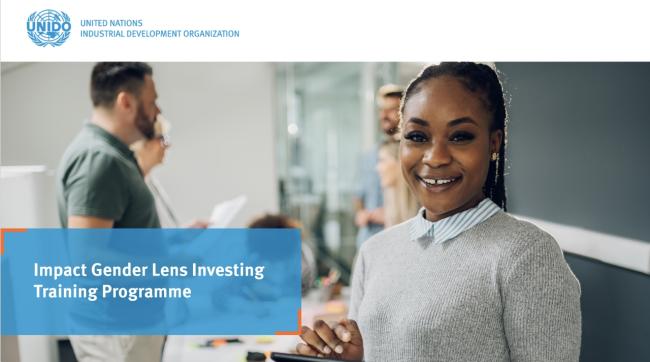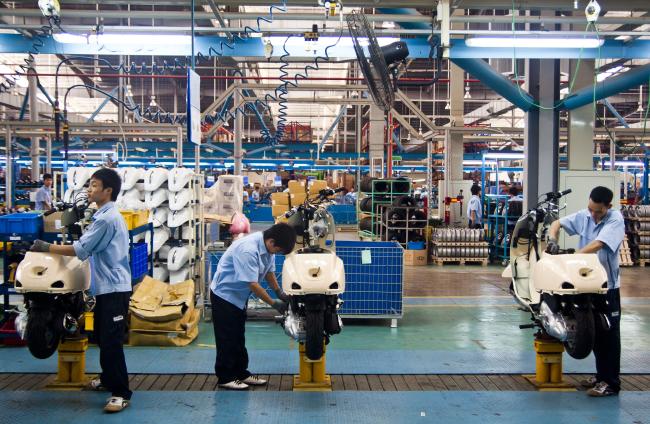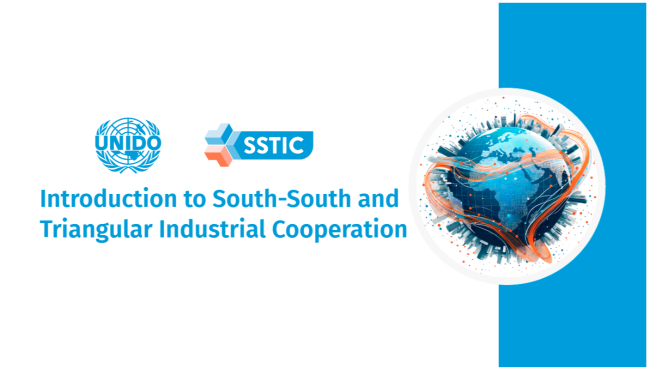UNIDO Training Academy
Welcome to the Training Academy!
Here you will find different online training courses related to quality and standards, sustainable supply chains, innovation and climate action. Upon successful completion of a respective course, a certificate will be issued for you.
To make sure course content is displayed correctly, please use Google Chrome or Firefox (please avoid using Internet Explorer).
All trainings are hosted on UNIDO's Moodle server. You will be redirected automatically.
Quality & Standards

Quality Infrastructure and Trade
Based on a solid analysis of trade challenges and opportunities, the training is designed for encouraging trade development along value chains.

Quality Policy
This training aims at supporting quality infrastructure practitioners and policy makers to design and develop robust, holistic, and demand-driven quality infrastructure systems.

Quality Management
A Roadmap to Quality is a newly developed and state-of-the-art e-learning training programme to promote understanding and facilitate the implementation of Quality Management effectively throughout the company.

Good Governance in Quality Infrastructure
This training aims to assist Quality Infrastructure practitioners build a Good Governance system within their organizations and to guide their work with samples of useful tools.

Inclusive and Sustainable Cluster Development
Clusters and business networks have become keywords in the policy debate in industrialized and developing countries. They are regarded as tools to promote poverty reduction and the development of competitive industries. However, several bottlenecks may hamper their performance.

OECD Good Laboratory Practices
The OECD Principles of Good Laboratory Practice (GLP) set quality standards for the management and conduct of non-clinical safety studies of chemicals. They outline responsibilities for personnel, facilities, and documentation to ensure reliable and valid test data. GLP promotes international harmonization and mutual acceptance of safety data across countries.

Good Standardization Practices (GSP) - Fourth Cycle
This eLearning course was developed by the International Organization for Standardization (ISO) and the United Nations Industrial Development Organization (UNIDO), with contributions from the Swedish International Development Cooperation Agency (Sida) and the Swiss Confederation’s State Secretariat for Economic Affairs (SECO).
Sustainable supply chains

Impact Investment
The aim of the training is to assist participants to explore how and why it is important to understand the fundamentals of alternative ways of investment, such as impact investing, as well as to introduce aspects of the broad-based, state-of-the-art methodology aimed to measure its impact keeping in mind a wider SDG compliance framework.

Gender Lens Investment Training
Imagine if women played an identical role to men in the labor force, as much as $28 trillion or 26% could be added to global annual GDP by 2025. Considering that it will require between $5-7 trillion of investment capital to address critical challenges outlined in the United Nations’ Sustainable Development Goals, Gender Lens Investing is the best silver bullet we have at hand..... time to untap the potential of Gender Lens Investing!

International Business Alliances
This training intendes to help firms from developing countries improve their competitive position and grow domestically and internationally by linking with foreign partners, leveraging the relationships with them, and learning further in order to achieve technological self-sufficiency and innovative capabilities of their own.

Investment Project Preparation and Appraisal Curriculum
The training course aims to develop essential expertise for the identification and appraisal of competitive and sustainable investment projects and provides methodologies to increase their likelihood of bankability.

Industrial Parks Financing and Investment Facilitation
This online course was designed to equip participants with the theory and practice of financing industrial parks development and facilitating investment flows into an industrial park.

Introduction to South-South and Triangular Industrial Cooperation (SSTIC)
This UNIDO self-paced e-learning course on South-South and Triangular Industrial Cooperation (SSTIC) offers a comprehensive overview of these development cooperation modalities, emphasizing their role in advancing sustainable development. The course is designed to be completed in 60-90 minutes and includes real-world case studies to illustrate key concepts.
Innovation

E-Commerce
This training course has been designed to provide a strong foundation on the basics of e-commerce, which aims to promote increased e-commerce adoption among SMEs.

Industry 4.0
The accelerated and widespread expansion of digital technologies across business and society has resulted in the emergence of the Fourth Industrial Revolution (4IR), also known as Industry 4.0. This training course has been designed to provide a strong foundation on the basics of Industry 4.0 and the 4IR.

Managing Innovation
This training aims to support innovation activities within organizations, particularly small and medium-sized enterprises.

Application of Advanced Technologies and New Business Models in the Biopharma and Medical Sectors
This training course is intended to provide a solid foundation on the biopharma and medical industries within the context of the 4IR. The online training comprises four modules and intends to highlight the 4IR implications for developing countries, particularly least developed countries, outline related challenges, and elaborate on how to capitalize on the potential that 4IR technologies present in these industries.
Climate action
Eco-Industrial Parks training
This seven-module online course provides an introduction to the concept of Eco-Industrial Parks and how they can deliver economic, environmental and social benefits to industrial parks, tenant companies, governments and local communities, thus making them more competitive, attractive for investment and resilient to risks.
